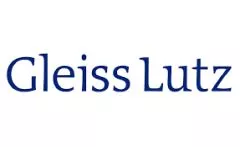Gleiss Lutz are most popular:
- within Cannabis & Hemp topic(s)
- in United States
The legislator premises that the greater proportion of universal services will be provided by the market without there being any need for intervention by the regulatory body. Only if it is to be feared that the provision of universal services is becoming inadequate or inappropriate will the regulatory body step in. The Telecommunication Act provides for a special procedure in such a case to ensure that these universal services will be provided. Every licensee carrying out the relevant licensable telecommunication service in the relevant market and who has a share of at least 4 % of the total turnover generated by that relevant market in relation to that service can be obliged by the regulatory body to provide universal services. This procedure is initiated by the regulatory body declaring in public that a particular universal service is not being provided on a certain market in an appropriate or adequate way. If none of the companies who are subject to providing such universal services under the procedure is willing to provide these services without compensation, then the regulatory body can obligate one or several particular licensees to provide these services (Section 10 TKG). This undertaking will, however, have a right to compensation if such universal services can only be provided at a loss. This will be financed by the imposition of a universal services-charge, similar to a tax levy, on those licensees, who on account of their market position, should have contributed to the provision of these universal services (Section 20 TKG).
This system has been severely criticized. During its passage through parliament, there were grave objections to the fact that licensees may have to provide non-licensed telecommunication services as a universal service whereas non-licensees are not obligated to provide universal services at all, irrespective whether such services are subject to license or not. This does not seem plausible. The manner in which the compensation payment is to be financed has in addition been criticized as being unconstitutional. There will also be a practical problem in determining whether the undertaking obligated to provide the universal services is in a position to provide these services cost-effectively. If the company under an obligation to provide these universal services succeeds in allocating as many cost factors to this service as possible, there is the risk that it will be indirectly financed by its competitors who are subject to the universal services charge.
For further information please contact Dr. Markus Deutsch, Gleiss Lutz Hootz Hirsch & Partner , Gatnerweg 2, 60322 Frankfurt, Germany, Fax: +49 69 955 14 198.
The article is correct to the best of our knowledge at the time of publication. However, it is written as a general guide. Therefore specialist advice should be sought as regards your specific circumstances.

